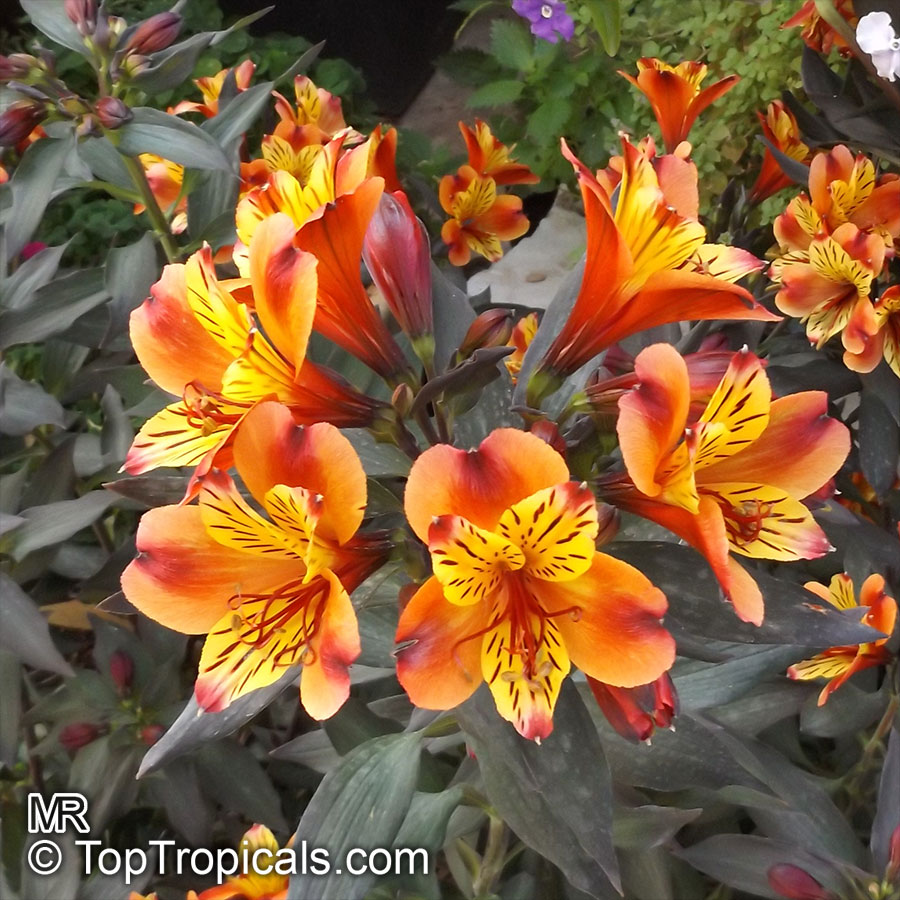How to Choose the Best Alstroemeria Companion Plants for Your Garden
Alstroemeria Companion Plants
When it comes to creating a beautiful garden, choosing the right companion plants is essential. Not only do they add visual interest and diversity, but they also provide many benefits such as attracting beneficial insects, improving soil health, and even repelling pests. In this article, we will discuss some of the best alstroemeria companion plants that you can grow in your garden.
1. Lavender
Benefits of Growing Lavender
Lavender is not only a stunning plant that adds a pop of color to your garden, but it also has a delightful fragrance that can help to deter pests. This makes it an excellent choice as an alstroemeria companion plant. Additionally, lavender attracts pollinators such as bees and butterflies, which can help to improve the yield of your crops.
How to Grow Lavender
Lavender prefers well-draining soil and plenty of sunlight. It is best to plant lavender in the spring or fall, and it should be watered regularly until it becomes established. Once established, lavender is relatively drought tolerant and only needs to be watered during extended periods of dry weather.
2. Salvia
Benefits of Growing Salvia
Salvia is another fantastic alstroemeria companion plant that offers both aesthetic and practical benefits. Like lavender, salvia is known for its ability to attract beneficial insects such as bees and butterflies. It also has a pungent scent that can help to repel pests such as deer and rabbits.
How to Grow Salvia
Salvia prefers well-draining soil and plenty of sunlight. It is best to plant salvia in the spring or fall, and it should be watered regularly until it becomes established. Once established, salvia is relatively drought tolerant and only needs to be watered during extended periods of dry weather.
3. Coreopsis
Benefits of Growing Coreopsis
Coreopsis is a beautiful alstroemeria companion plant that adds a pop of color to your garden. It attracts beneficial insects such as bees and butterflies, which can help to improve the yield of your crops. Additionally, coreopsis is known for its ability to improve soil health by adding nitrogen to the soil.
How to Grow Coreopsis
Coreopsis prefers well-draining soil and plenty of sunlight. It is best to plant coreopsis in the spring or fall, and it should be watered regularly until it becomes established. Once established, coreopsis is relatively drought tolerant and only needs to be watered during extended periods of dry weather.
4. Zinnias
Benefits of Growing Zinnias
Zinnias are a popular alstroemeria companion plant due to their stunning and vibrant colors. They also attract beneficial insects such as bees and butterflies, which can help to improve the yield of your crops. Additionally, zinnias are easy to grow, making them an excellent choice for beginner gardeners.
How to Grow Zinnias
Zinnias prefer well-draining soil and plenty of sunlight. They can be planted directly in the ground or in containers. It is best to plant zinnias in the spring or summer, and they should be watered regularly until they become established. Once established, zinnias are relatively drought tolerant and only need to be watered during extended periods of dry weather.
5. Marigolds
Benefits of Growing Marigolds
Marigolds are another popular alstroemeria companion plant that adds a pop of color to your garden. They also attract beneficial insects such as bees and butterflies, which can help to improve the yield of your crops. Additionally, marigolds are known for their ability to repel pests such as aphids and mosquitoes.
How to Grow Marigolds
Marigolds prefer well-draining soil and plenty of sunlight. They can be planted directly in the ground or in containers. It is best to plant marigolds in the spring or summer, and they should be watered regularly until they become established. Once established, marigolds are relatively drought tolerant and only need to be watered during extended periods of dry weather.
FAQs
1. Can I plant alstroemeria with roses?
Yes, alstroemeria can be planted with roses. They make excellent companion plants and look stunning together in a garden.
2. What other benefits do companion plants offer?
Companion plants offer many benefits, including attracting beneficial insects, improving soil health, and even repelling pests.
3. Can I grow alstroemeria in containers?
Yes, alstroemeria can be grown in containers. However, it is essential to choose a container that is large enough to accommodate the plant's root system.
4. How often should I water my alstroemeria?
Alstroemeria prefers moist soil but does not like to be overwatered. Water your alstroemeria regularly, but allow the soil to dry out slightly between waterings.
5. Can I grow alstroemeria indoors?
Yes, alstroemeria can be grown indoors. However, they require plenty of sunlight and may not thrive in low-light conditions.










Post a Comment for "How to Choose the Best Alstroemeria Companion Plants for Your Garden"